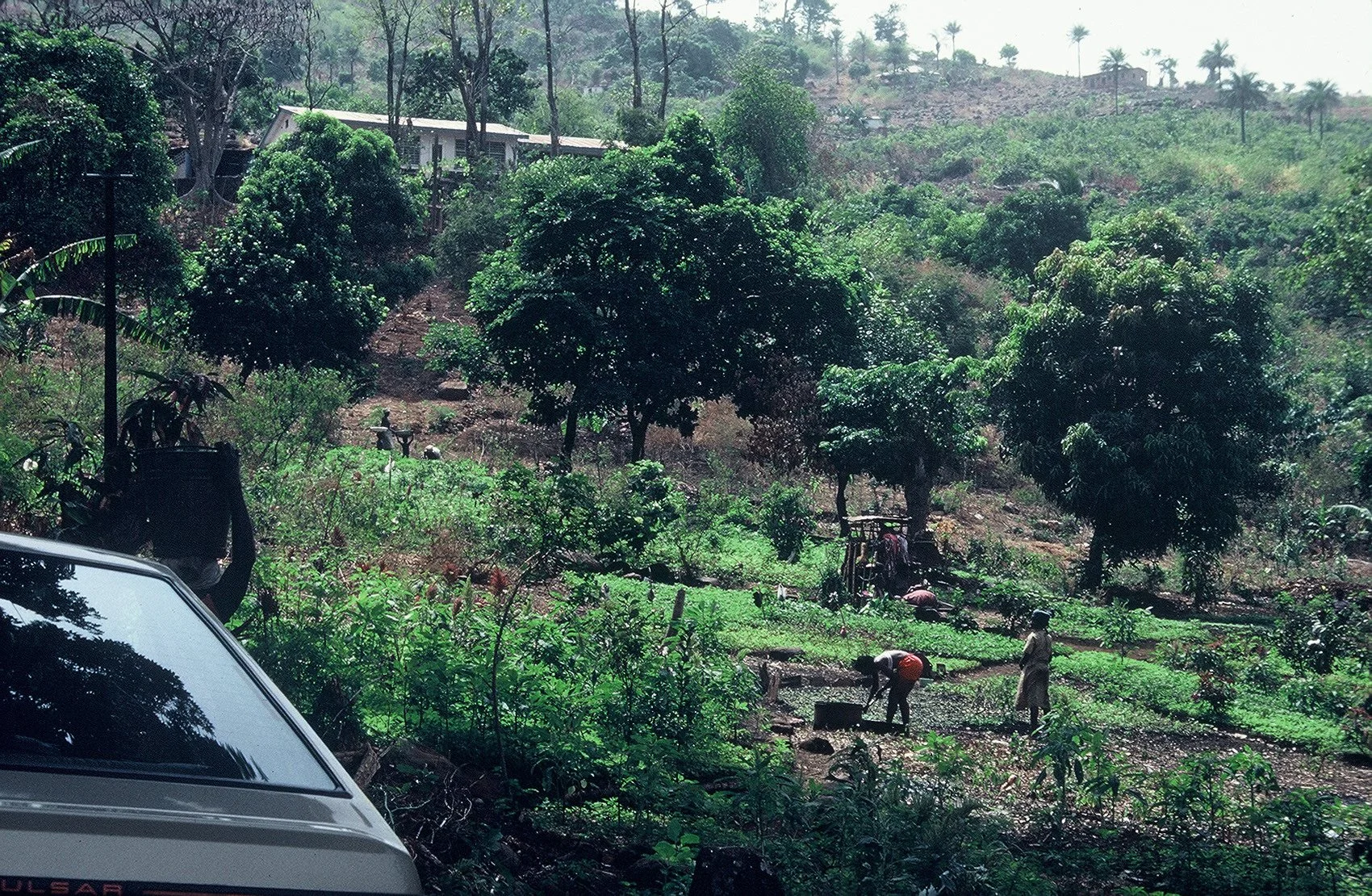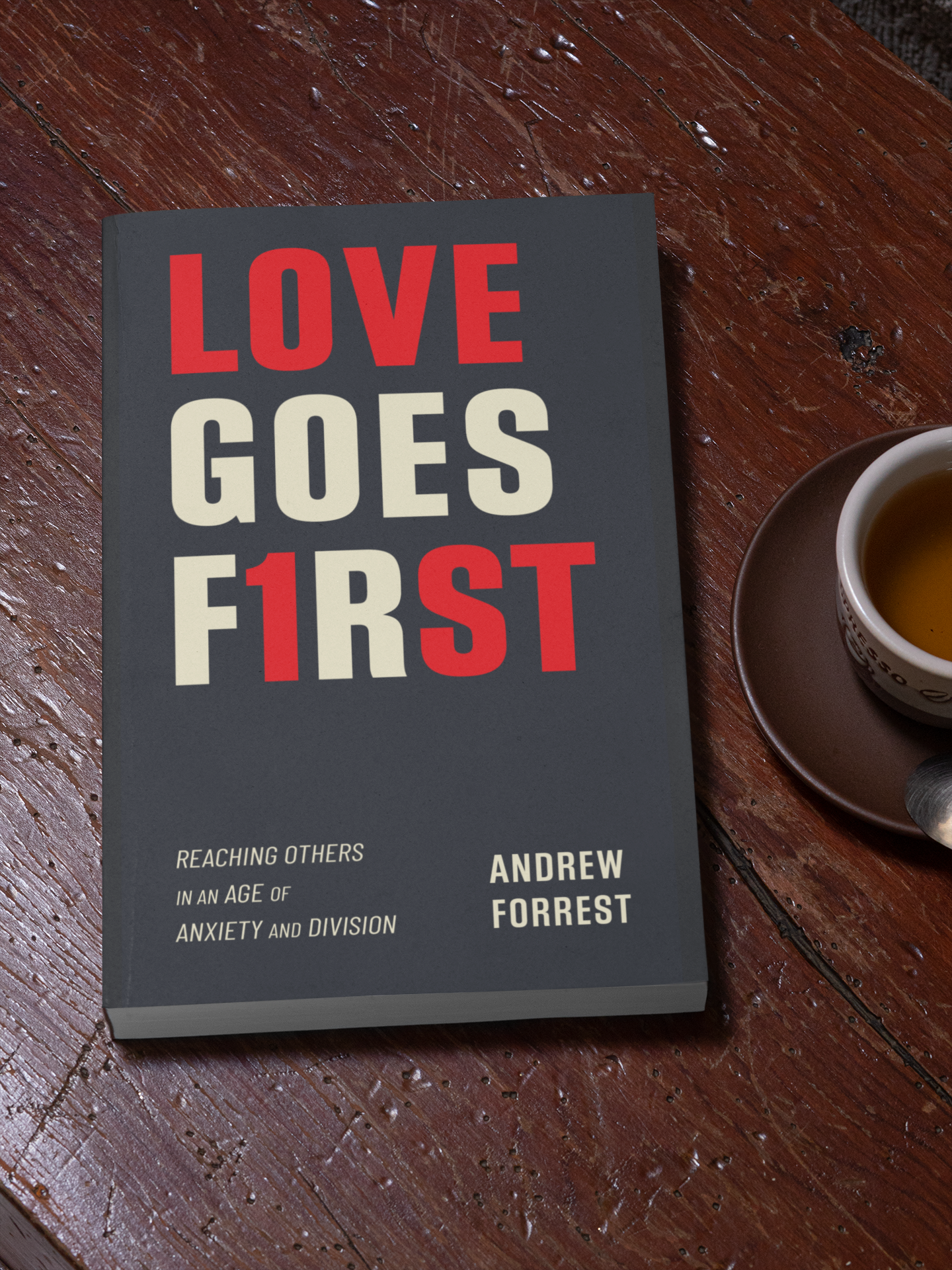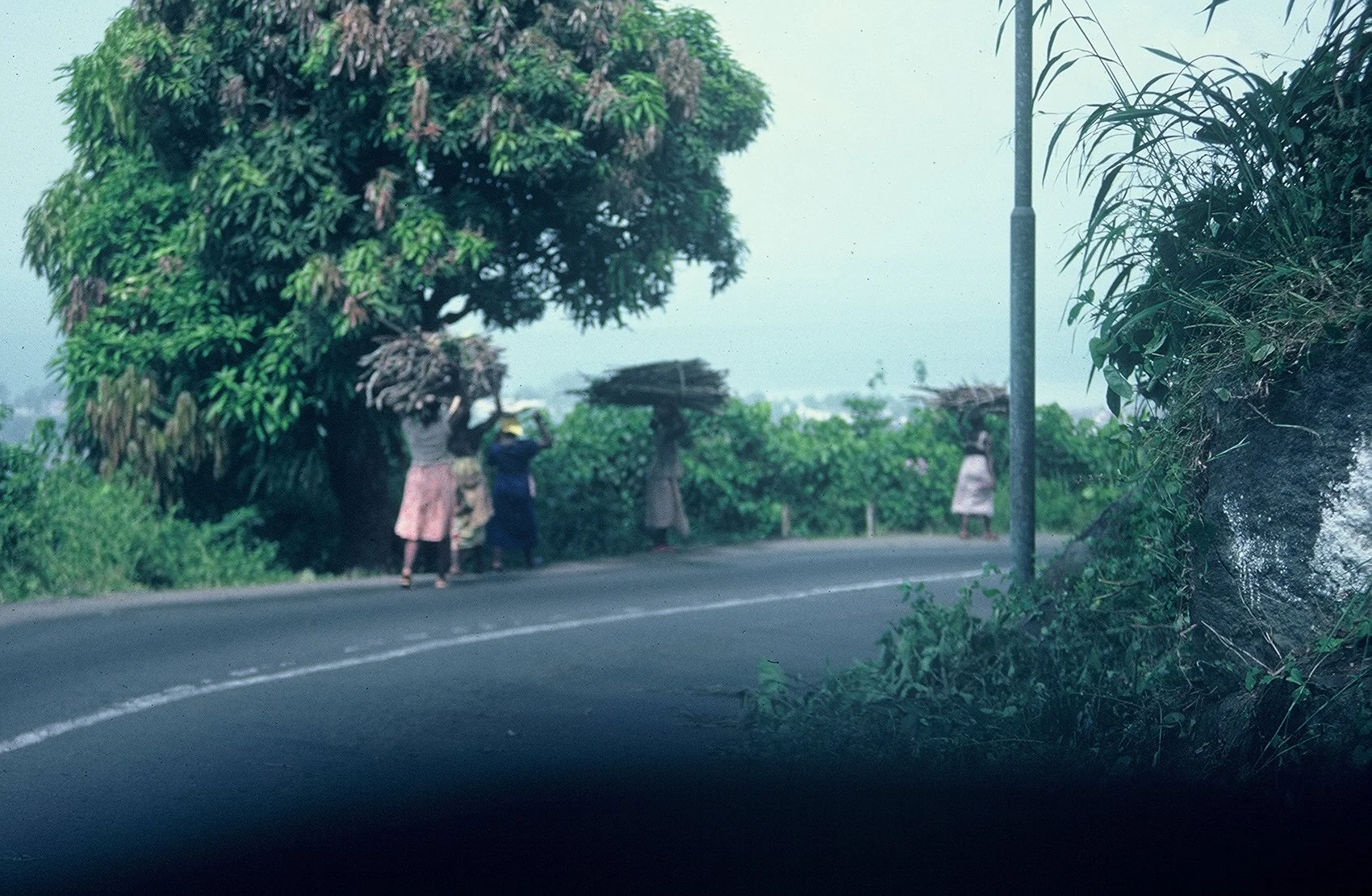Photo of My African House
I have a new book coming out in October. It’s called Love Goes First: Reaching Others in an Age of Anxiety and Division.
In a world of division and polarization, how we do actually reach the people on the other side? That’s what my new book is about.
My mom recently digitized some old photos, and she shared a couple of them on our family text thread. The photos made me think of a little story I tell in the book, which I share below, and I thought the photos might help you get a sense of the story.
In the photo at the top of the post, you can see the house we lived in, perched as it was on the side of a small mountain in Freetown, Sierra Leone, West Africa. From our house, you could see all the way to the harbor (Freetown has a natural deep water harbor) and the ocean.
Sierra Leonean women carry their burdens on their heads. In the second photo above, you can see the women carrying bundles of firewood, with which they will make charcoal. I’m pretty sure that leafy tree on the left of the photo is a mango tree, though it’s hard to tell.
The reason I point out the mango tree is because of an anecdote I relate in my upcoming book (pre-order!) about something my mom would say to us when we wanted play in a nearby mango tree. I share the excerpt below.
“They’re More Scared of You Than You Are of Them”
When I was a little boy, I lived with my family on the side of a small green mountain in West Africa. Our house on the verdant mountainside was surrounded by mango trees. Mangoes are good for eating and mango trees are good for climbing, and the best mango tree for climbing was the big one at our neighbor’s house. Our neighbor lived across a small, shallow valley from our house, and there were two ways to get there: the long way and the short way. The long way was the road, which curved around the side of the valley in a broad loop. Since boys don’t like taking the long way, we never took the road. It was far better and faster to cut across the valley, following a small dirt footpath that ran directly to our neighbor’s house. This path cut through a shallow bowl of tall reeds and grasses, reeds so tall that once you entered the path, you could see neither right nor left. At times, as my brother and I ran along the path, we’d spot a black form with a red belly rustling and slithering across the path in front of us: a spitting cobra. My love for climbing the good climbing tree at my neighbor’s house made me want to cross the valley, but I always did so with a fear of meeting a cobra. I would run along the path so fast it felt as if my feet barely touched the ground.
Our green little mountain was infested with spitting cobras, which are exactly what they sound like: cobras that rear up and spit venom at the eyes of their prey. Once, my nearsighted dad came around the corner of our house and startled one of these snakes, which swayed up and spit venom at him. Fortunately, my nearsighted dad wears glasses, and when he came sprinting back inside the house, we could see the milky venom dripping off his lenses. I’ve never liked cobras.
My brother and I would whine about the snakes living around us, but my mom adopted her Pollyanna persona and wouldn’t accept our complaints. She would tell us, “Boys, they are more scared of you than you are of them.” I think she got her herpetological information from that scene in The Parent Trap where the gold-digging fiancée is set up by the twins and convinced to tap sticks together to scare off California bears. My mom’s advice was essentially to make lots of noise whenever we ran around outside, certain that our noisemaking would scare away any lurking cobras. Sometimes, as we ran across the valley to that wonderful mango tree for climbing, we’d clap our hands and yell like little idiots, hoping that our mom was right and all the cobras were fleeing before us.
But if I’m honest, even as a small boy I had my doubts about the truth of her claim about the psychological state of our neighborhood cobras— “Boys, they’re more scared of you than you are of them”— primarily because it didn’t seem possible for a venomous, coldhearted reptile to experience terror greater than the kind I felt as an imaginative little boy. Even to this day I do not care for snakes and find it entirely appropriate that the Bible tells us it was a serpent that brought evil into Eden. But now, as an adult, I have decided that my mother was more right than she realized. She may not have known anything about snakes, but her insight is accurate when applied to other people: They tend to be more scared of you than you are of them.
Now, of course, it is not actually true that everyone nearby is walking around in fear of your presence—to say that other people are “more scared of you than you are of them” is a bit tongue-in-cheek. What I mean when I use that phrase is that people are naturally reactive; we observe what others do and how others act before we decide how we will act. To act first, therefore, without regard to how someone else is acting is a radical departure from the natural human tendency. So though other people are probably not shaking in their boots when they see you coming, they are nevertheless naturally inclined to base their actions off whatever you do….
[end of excerpt]
I’m excited about this upcoming book, and I want to get the message out. If you’d pre-order a copy at your preferred bookseller, it would really help, because pre-orders communicate to the booksellers that this is a book they should get behind and really market.



